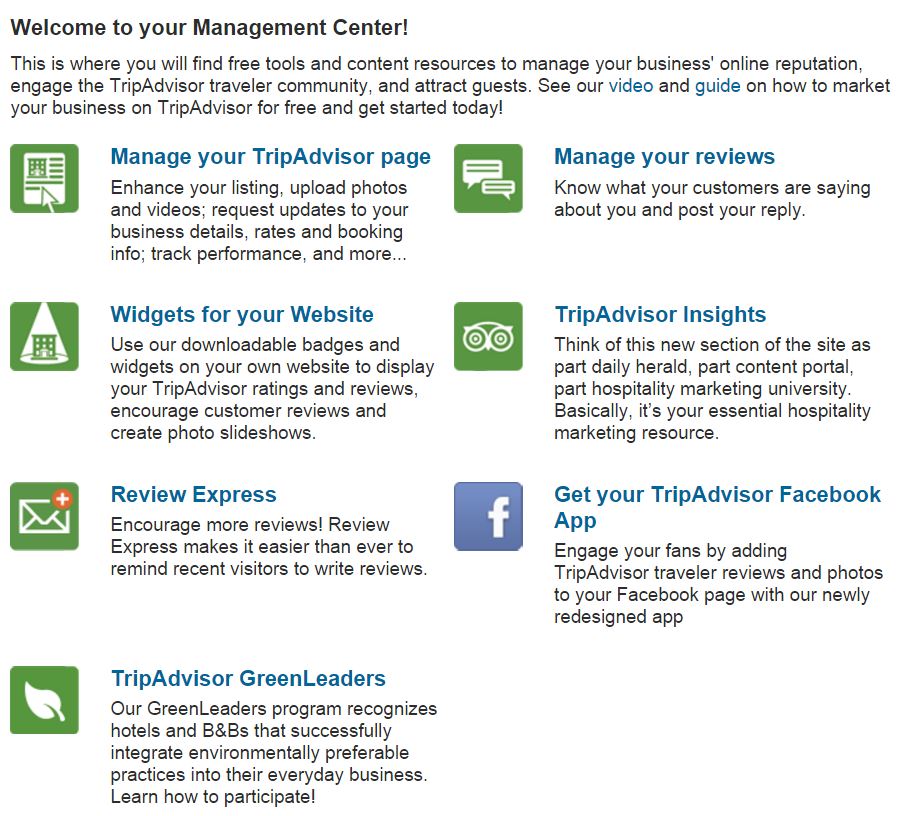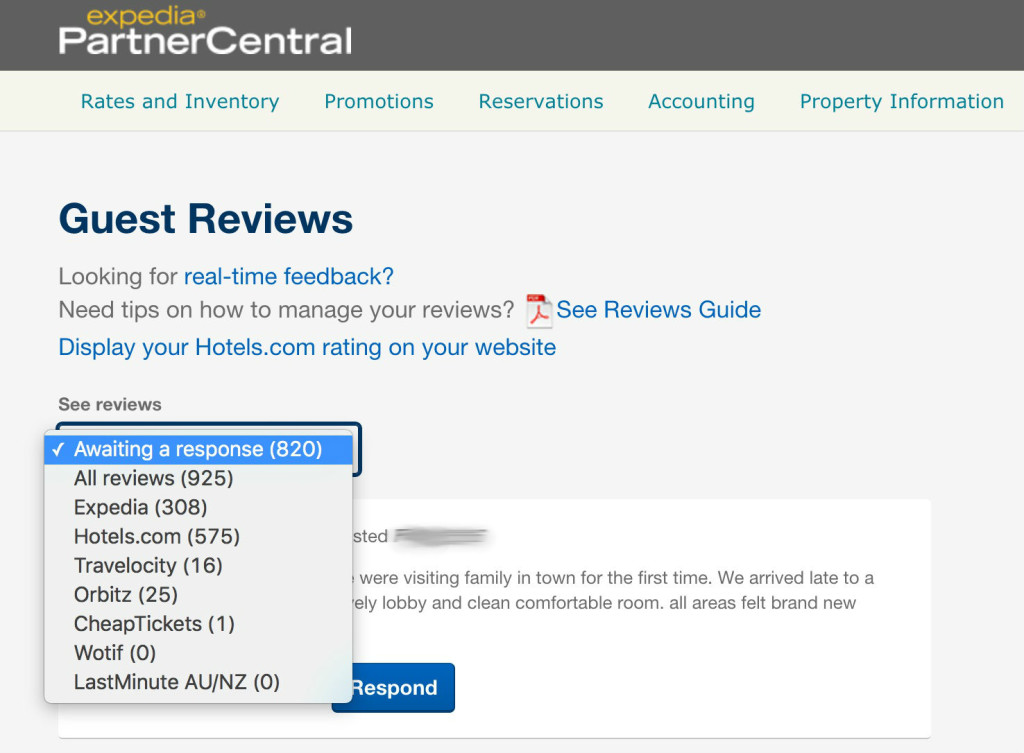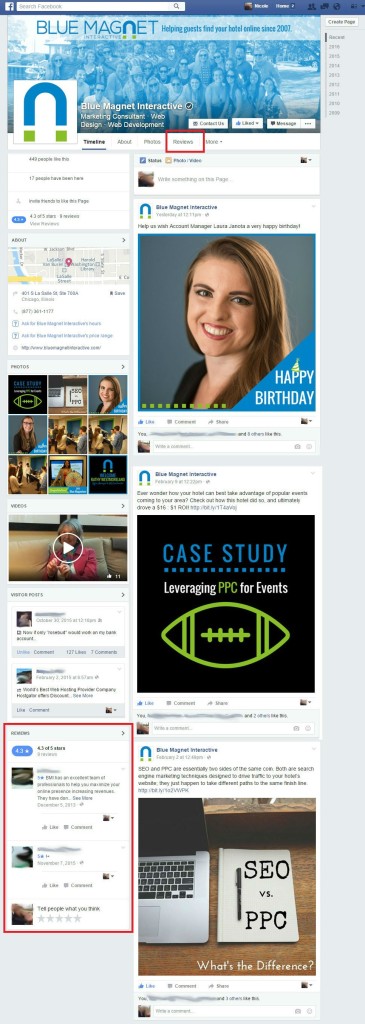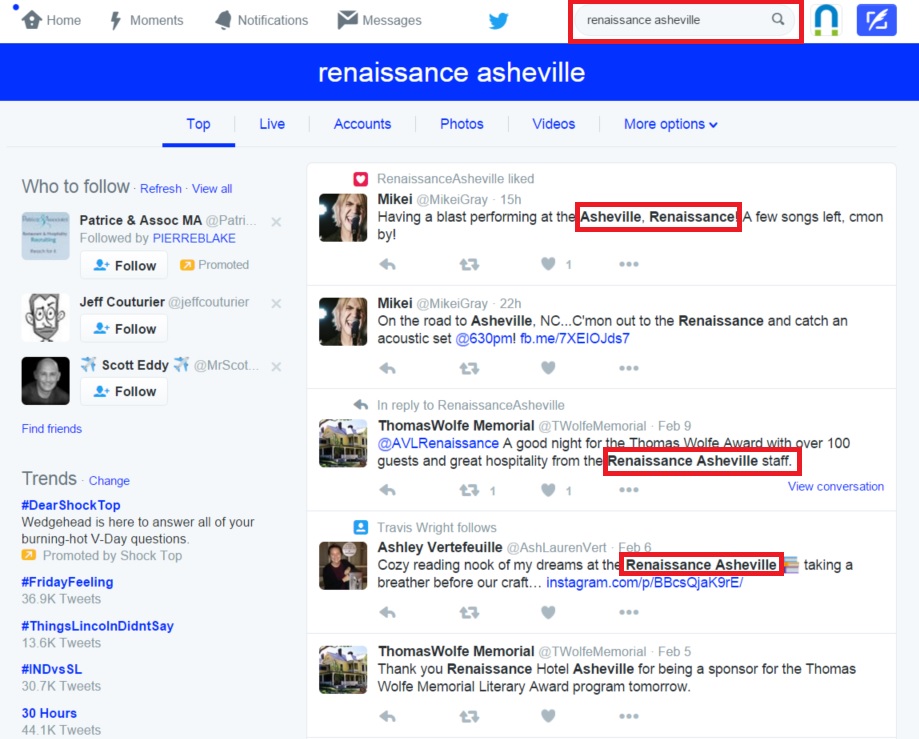Over the years, managing your hotel’s reputation has become more complex than just reviewing guest comment cards or speaking to guests directly. With the help of Internet, travelers can now give feedback with a click of a button on sites like TripAdvisor or Expedia (OTAs), social media channels (Facebook, Twitter), and local listings (Yelp, Google+). This means your hotel will be talked about in positive or negative light with or without you being present on that channel.
How do these online guest reviews affect your hotel? The answer is simple: a lot. With more than 290 million traveler opinions and over 190 reviews posted every minute on TripAdvisor and over 1.04 billion daily active Facebook users, potential guests have a lot of opportunities to find your hotel online, see what others are saying about you, and form an opinion without even stepping foot on your property.
We explored how to respond to online traveler reviews in a previous post; today I am going to guide you through managing your online reputation and discovering the value from these reviews.
Step One: How to Find Where Guests are Talking About You
Guests have plenty of opportunities to discuss their experience at your hotel throughout the internet. The most popular places are through your OTA listings, social media profiles, and local listings (listed below). Here is how you can locate these reviews in order to respond:
OTAs
- TripAdvisor: Management Center is an excellent way to monitor and respond to all of your hotel’s TripAdvisor reviews. You can also report any issues there may be with a review to the TripAdvisor team. For example, you can submit a review if it contains profanity or was written by an ex-employee. Their team will then review and remove the guest’s review if it does not match TripAdvisor’s guidelines.
- Expedia and Hotels.com: In Expedia Partner Central, you are able to check and respond to reviews from Expedia, Hotels.com, Travelocity, and Orbitz.


Social Media Channels
- Facebook: Facebook users have multiple opportunities to share their experiences with your hotel; we are going to focus on the review section. Your Page’s reviews can be found on both on the left-side column of your Page’s Timeline and in the Page Tabs section. If you have admin access to your Page, you can respond to reviews, as your hotel, directly in this section. Page admins will receive notifications whenever your hotel has been rated.
- Twitter: Twitter does not have a section dedicated to reviews; however, guests are still sharing their experiences with one another and sending direct messages to your hotel’s account. If a guest does not specifically tag your handle in their tweet, do not fear. You can find them by searching for your hotel’s full name and any tweets containing your hotel’s name will appear.


Local Listings
- Yelp: Similar to OTAs, Yelp also has a Business Owners portal where you are able to see all of your reviews, write a public comment that will be published immediately, or send private message to the reviewer.
- Google+: With your Google My Plus account, you can receive notifications when reviews are written about your hotel and respond directly on your Google+ page.
Step Two: Respond to Reviews
After locating your reviews, continue the one-on-one conversation with your guests. An excellent way to tackle responding to all of these reviews is to create a team of dedicated responders. One of the most frequently asked questions we receive at Blue Magnet Interactive is, “Should we respond to ALL reviews?” The answer is no. As incredible as it would be to acknowledge each and every guests’ opinion, it is also very time consuming. Your hotel should strive to respond to 100% of negative reviews and at least 30% of positive and neutral reviews.
When replying to reviews, keep these tips in mind:
- Take a deep breath and keep an open mind when reading your guests’ feedback. Whether it is a positive or negative review, the guest is always right.
- Be mindful of when the response will go live. Some channels, like TripAdvisor and Expedia, take a day or more to publish the response and others, like Yelp and Facebook, show immediately.
- You cannot and should not delete reviews. If you truly feel a review is about another hotel or is completely fabricated, you can report the review and the channel’s team will determine whether or not the review will be removed. The best way to protect your hotel’s online reputation is to respond and then investigate.
Step Three: Encourage Current Guests to Share Their Story
Avoid negative online feedback by being proactive and talking to your guests while they are at your hotel. Encourage your staff to mingle; this way, you have an opportunity to resolve any issues before your guest leaves. You can also share your TripAdvisor Certificate of Excellence on your hotel’s brand and/or independent website and on social media. Your web visitors will be inspired to check out your TripAdvisor page, read about your hotel’s unique amenities, discover how much past guests have enjoyed staying with you, and then book with your hotel. If potential guests are reading a negative review and notice your hotel has responded, they are less likely to continue on with their research because they are seeing your hotel takes the initiative and values your guests’ opinion.
Step Four: Discover the Value
The final step in managing your hotel’s online reputation is to find the value in what guests are saying about your hotel. Appreciate the opportunities your past guests are providing you with and learn for future guest experiences. Do not just brush a negative review off. Investigate the comments and discuss with your staff during team meetings. This is also a fantastic chance to highlight team members praised in reviews.
Please, Thanks, and Learn
All that is left to do is sit back, monitor your reviews, and observe the difference in having an online presence compared to not actively being a part of the conversation. Now, it is your turn to say “please and thanks” to your reviewers and improve upon your efforts for future guests. By responding to reviews in a positive and polite tone, you are showing users that your hotel cares, changing a frustrated guest’s opinion, and encouraging potential guests to stay at your hotel.
For additional resources to manage your hotel’s online reputation, set up Google alerts or monitor all of your reviews in one place with a reputation management platform such as Revinate or your brand’s platform of choice (i.e. Marriott’s guestVoice).
Stay up-to-date on the latest digital marketing news for your hotel by signing up for our email newsletter below!




